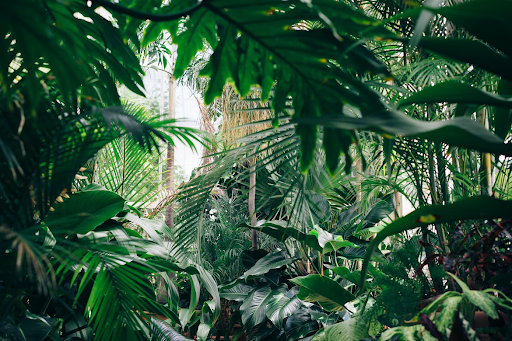
 Loading... Please wait...
Loading... Please wait...Save Money. Grow Your Own!
Fast Plain Box Shipping.
We ship to the US & Canada.
Posted on 19th May 2022

There are many things that can negatively affect the growth of your plants. In this blog post, we will discuss six of the most common culprits. Poor soil quality, lack of sunlight, pests, and diseases, incorrect watering habits, overzealous pruning, and extreme temperatures can all cause problems for your plants. If you are having trouble getting your plants to grow, take a look at the list below and see if any of these issues might be causing the problem.
To have healthy plants, you need to start with good quality soil. The type of soil you have will affect how well your plants grow. If you have poor quality soil, it will be more difficult for your plants to get the nutrients they need to grow properly.
To improve the quality of your soil, you can add organic matter such as compost or manure. You can also use a soil test kit to test the pH of your soil and adjust it accordingly.
If you have poor quality soil, it will be more difficult for your plants to get the nutrients they need to grow properly.
As plants are living organisms, they need sunlight to undergo photosynthesis - a process that produces food for the plant. When there is a lack of sunlight, the plant will not be able to produce its own food and will ultimately die.
To ensure that your plants are getting enough sunlight, make sure to place them in an area where they can receive direct sunlight for at least six hours a day. If you live in an area with little to no natural sunlight, you can also use grow lights to provide your plants with the light they need.
One of the most important things for plant growth is lighting. If you don't have enough light, your plants will not be able to photosynthesize and grow properly. Make sure you have enough light, especially if you are growing indoors. Along with white light, plants also need a small amount of blue and red light for proper growth. That way, they can produce the chlorophyll needed for photosynthesis.
Just like humans, plants need water to survive. Without water, plants will wilt, their leaves will turn yellow, and eventually, they will die.
To avoid this, make sure to water your plants regularly and deeply. How often you need to water your plants will depend on the type of plant, the size of the plant, the potting mix, and the weather. For example, if you live in a hot and humid climate, you will need to water your plants more often than if you live in a cooler climate.
If you overwater your plants, they will also suffer. When plants are overwatered, their roots will start to rot, and they will eventually die. To avoid overwatering your plants, make sure to check the potting mix before watering them. If the potting mix is still wet, wait a few days before watering your plants again.
Many plants need a consistent temperature to grow properly. Sudden changes in temperature can shock the plant and cause its growth to stall or stop altogether. If you're growing plants indoors, make sure that your thermostat is set to a comfortable temperature and try to avoid drafts from windows or doors.
Outdoors, and fluctuations in temperature are more common and can be more difficult to control. If you live in an area with extreme temperatures, it's important to choose plants that are tolerant of the conditions. Also, take care to site your plants in a location that will provide some protection from the hottest or coldest parts of the day.
While plants need carbon dioxide to conduct photosynthesis, they also require a good amount of air circulation to ensure that they are receiving the oxygen they need. When there is not enough air circulating, the plant will start to suffer and the leaves will begin to turn yellow and fall off.
You can improve air circulation by opening up windows or doors in the room where your plants are located, or by using a fan to create a gentle breeze. Just make sure that the air is not too dry, as this can also negatively affect plant growth.

It is important to remember that every plant is different. While some plants may be able to tolerate a little neglect, others will not. Pay attention to your plants and learn what they need in order to thrive. With a little care and attention, you can keep your plants healthy and happy. Thanks for reading!